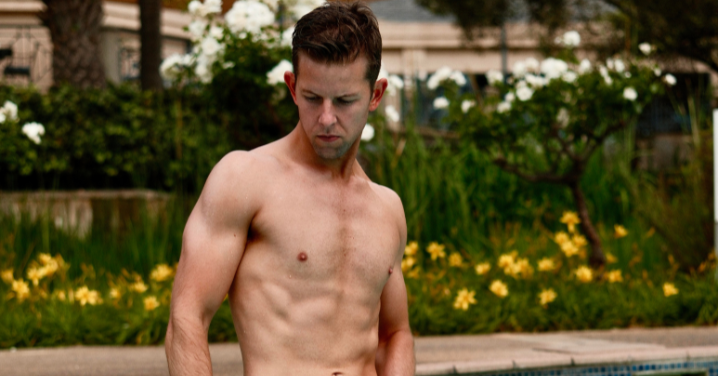
Family estrangement. Just saying it out loud feels heavy, doesn’t it? It’s one of those topics no one likes to touch, as if admitting it exists somehow makes us worse people. But let’s be honest—cutting ties with family is a reality for so many of us. Whether you’ve been through it yourself or know someone who has, it’s a silent burden that carries more weight than most people realise. And the worst part? It’s so often wrapped in guilt, shame, and the judgement of others.
I’ve seen it firsthand—the moment when someone realises their family isn’t the safe, loving unit they thought it should be. Sometimes it’s a slow build, years of unresolved tension or hurt that finally reach a breaking point. Other times, it’s sudden, like a lightning bolt of betrayal or abuse that leaves you with no choice but to walk away. Whatever the cause, it’s never easy. Letting go of the people who are supposed to be your foundation feels like stepping into quicksand. You’re stuck between grieving what could have been and fighting to protect yourself.
Society doesn’t make it any easier. The idea that “family is everything” is drilled into us from day one. It’s on every TV show, in every holiday advert, and at every family gathering where someone inevitably asks, “Have you spoken to so-and-so lately?” And when you admit you haven’t—when you say the relationship isn’t healthy or safe—you’re met with disbelief or pity. “But they’re your family,” they say, as if that alone should erase the hurt.
Here’s the thing: being related by blood doesn’t mean unconditional love. Relationships—any relationships—require trust, respect, and effort from both sides. If those things aren’t there, what’s left? Sometimes, keeping that connection alive costs too much. It takes too much out of you, leaving you drained, broken, and questioning your own worth. Choosing yourself isn’t selfish; it’s survival.
But let’s not ignore the flip side. Family estrangement isn’t just about the person walking away; it ripples outward. For some, cutting ties feels like abandoning a responsibility or betraying cultural or religious expectations. For others, it’s losing not just one person but an entire community—siblings, cousins, even shared traditions. It’s waking up to a quiet holiday table or deleting a phone number you used to call every week. And it’s doing all of that while battling the voice in your head asking, “Am I doing the right thing?”
So, why does it happen? The reasons are as varied as families themselves. Abuse is a big one, whether physical, emotional, or even financial. Then there’s neglect, favouritism, or toxic dynamics that make you feel like you’re constantly walking on eggshells. Sometimes, it’s differences in values or lifestyles—who you love, what you believe, or the path you choose for yourself. Other times, it’s simply incompatibility. Not all family members get along, and that’s okay to admit.
And yet, even when it’s necessary, the emotional toll is staggering. Estrangement is grief. It’s mourning the family you hoped you’d have, the parent you wished would change, or the sibling you thought would stand by your side. It’s carrying that loss quietly, because how do you explain to someone that your “missing piece” is still alive but unreachable? The pain is real, even if the relationship was harmful.
But you know what makes it worse? The silence. The isolation. Estrangement is so often treated as a dirty secret, something to be ashamed of. And that’s where we, as a society, are failing each other. We don’t talk about it. We don’t normalise the fact that not all families are built to last. We don’t acknowledge the courage it takes to walk away or the strength it requires to keep going.
So how do we change that? For starters, we need to stop judging. If someone shares that they’ve cut ties with a family member, the last thing they need is to be shamed or interrogated. Instead of asking, “Why don’t you just make up?” try, “How are you holding up?” Be curious, not critical. Remember, you’re hearing one chapter of their story, not the whole book.
We also need to create spaces for open, honest conversations. Therapy can be a lifeline for those navigating estrangement, but so can supportive friends, online communities, or even articles like this. The more we talk about it, the less taboo it becomes. And when it’s no longer taboo, people feel less alone.
For those experiencing estrangement, let me say this: it’s okay to feel hurt, angry, or even relieved. It’s okay to grieve the relationship while still knowing it’s better for you to step away. And it’s okay to protect your peace. Healing doesn’t mean reconnecting; it means finding a way to carry the pain without letting it define you.
For everyone else, let’s do better. Let’s listen without judgement, offer support without conditions, and remember that family isn’t just about who you’re born to—it’s about who shows up for you. Let’s challenge the idea that blood is always thicker than water and start valuing the connections that nourish us, not the ones that drain us.
In the end, family estrangement isn’t just about broken relationships. It’s about resilience. It’s about choosing hope, even when the path forward feels uncertain. And it’s about finding or building a community that feels like home, even if it’s not the one you were born into. Because at the heart of it, we all deserve to feel loved, supported, and safe. And sometimes, that means rewriting the definition of “family.”
So here’s my plea: if you’re carrying the weight of estrangement, know that you’re not alone. Your story matters, and your choices are valid. And if you’re in a position to support someone else, be the kind of person who lightens their load, not adds to it. Together, we can create a world where no one has to bear this burden in silence.



